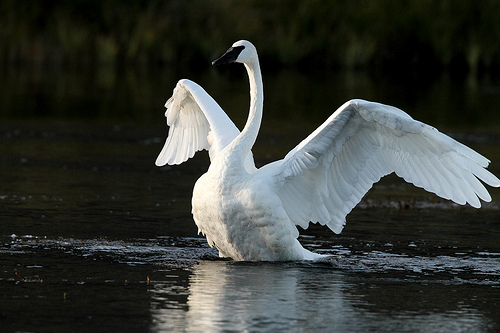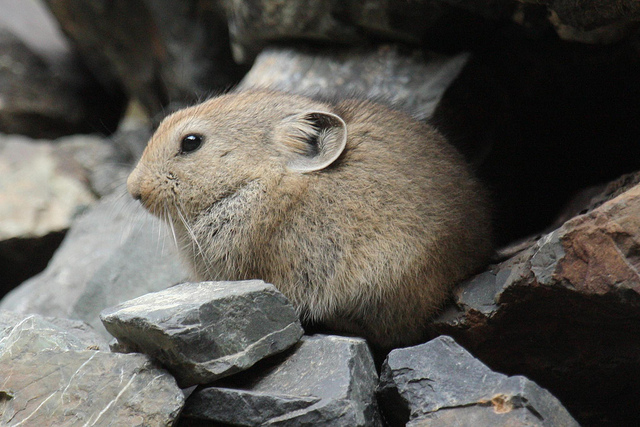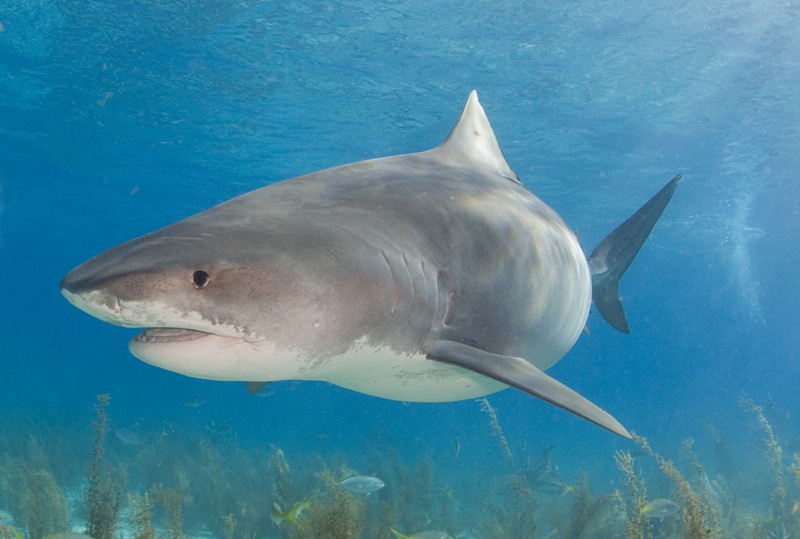extinction
-
How bullets kill wildlife decades after they’ve been fired
Honker flew the coop and dodged a bullet.Photo: Alan VernonThis piece was written by Bruce Dorminey. At first glance, Crescent Lake, a shallow body abutting a cornfield in upper Snohomish County, Wash., would appear to be perfectly pristine. Mallard and pintail ducks skirt the edges of its banks on waters that — in this contaminated […]
-
Pikas: The cutest animal you may never see again [SLIDESHOW]
Is the pika America's cutest rodent? Think fast about that one, because global warming is herding it towards extinction. We've put together a slideshow, so you can get your fill of their cuddly little faces before it's too late.
-
So long and thanks for all the fish
There was some hope recently that the International Commission for the Conservation of Atlantic Tunas, the organization charged with managing the Atlantic tuna fishery, would listen to its own scientists and ban commercial Atlantic bluefin tuna fishing so that the species might survive. Nope: Environmentalists on Sunday warned bluefin tuna was on its way to […]
-
It’s time to end the practice of shark finning
This post is co-authored with Discovery Channel GM & President John Ford. —– Photo: Willy VolkEvery half-second a shark is killed for its fins, so in the time it takes you to read this post, hundreds of sharks will die. “Finning,” as the practice is known, is decimating shark populations world-wide. Every year up to […]
-
Frogs in the forest: the new canaries in the coal mine
Dr. Kerry Kriger cracks a smile during his visit to Grist’s Seattle HQ.Russ Walker / GristOn Tuesday, the staff at Grist devoured frogs for lunch. Well, not exactly. We sat down with conservation biologist Dr. Kerry Kriger of the newly minted nonprofit Save the Frogs! — one of several stops he’s making in Seattle during […]
-
New research correlates mass extinctions with the rise and fall of oceans
New research finds that the "rise and fall of ocean levels correlated more consistently with mass extinctions than any other factor." Published in Nature this week, "Environmental determinants of extinction selectivity in the fossil record" ($ub. req’d) explores "the close statistical similarities between patterns of marine shelf sedimentation and rates of extinction.”
On our current emissions path, the planet’s temperature by 2100 will be more than 4.5°C hotter than today, hotter than it was the last time the world was ice free and sea levels were some 250 feet higher (see here). This research supports the IPCC prediction that as global average temperature increase (PDF) exceeds about 3.5°C (relative to 1980 to 1999), model projections suggest significant extinctions (PDF) (40-70 percent of species assessed) around the globe.
But really, who needs other species anyway? What have they ever done for us?
-
Caribbean monk seal is extinct
The Caribbean monk seal is extinct, U.S. officials declared Friday. The seals, also called West Indian seals, have been on the endangered-species list since 1967; the last confirmed sighting of one was in 1952. The Caribbean monk, native to the Caribbean Sea and Gulf of Mexico, is the only seal that has gone extinct directly […]
-
Owls are wimps
“Old growth had nothing to do with it. [The spotted owl]’s not dying because of the loggers, but because it’s a wimp!” — Bill Pickell, retired manager for the Washington Contract Loggers Association
-
Monday bummer blogging
Damn, one of the more promising ideas, biochar, seems to be a little less promising than hoped:
... a new study ... suggests that these supposed benefits of biochar may be somewhat overstated.
... They found that when charcoal was mixed into humus ... charcoal caused greatly increased losses of native soil organic matter, and soil carbon ... Much of this lost soil carbon would be released as carbon dioxide, a greenhouse gas. Therefore, while it is true that charcoal represents a long term sink of carbon because of its persistence, this effect is at least partially offset by the capacity of charcoal to greatly promote the loss of that carbon already present in the soil.Oh, and you know that thing Al Gore talked about, where birds would emerge from their eggs only to find that their usual food had already peaked and declined because the changing climate had disconnected formerly co-evolved species? Well, caribou go next:




